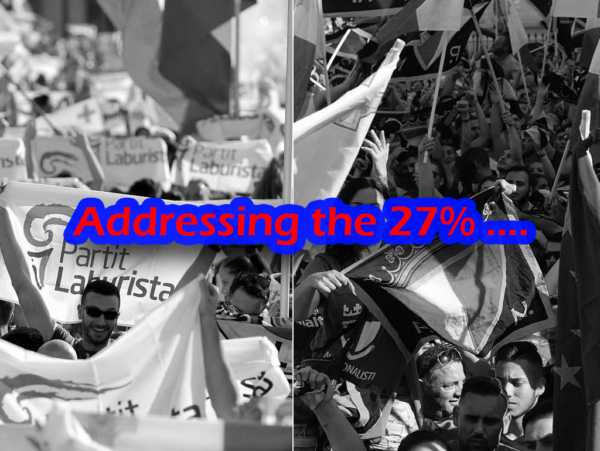
Addressing Non-Voters: The Key to Unlocking Change in Malta
The Times of Malta recently reported that Labour’s popularity has dropped to its lowest in years, according to a recent poll. However, while many non-voters and former PL supporters have become disgruntled with the current government’s performance, the PN has failed to gain any ground. Instead, most of Labour’s lost votes have gone towards third parties or abstentions. This survey highlights the need for non-voters to be addressed, listened to, and targeted in a way that they feel part of a team that is aiming for positive change in the country.